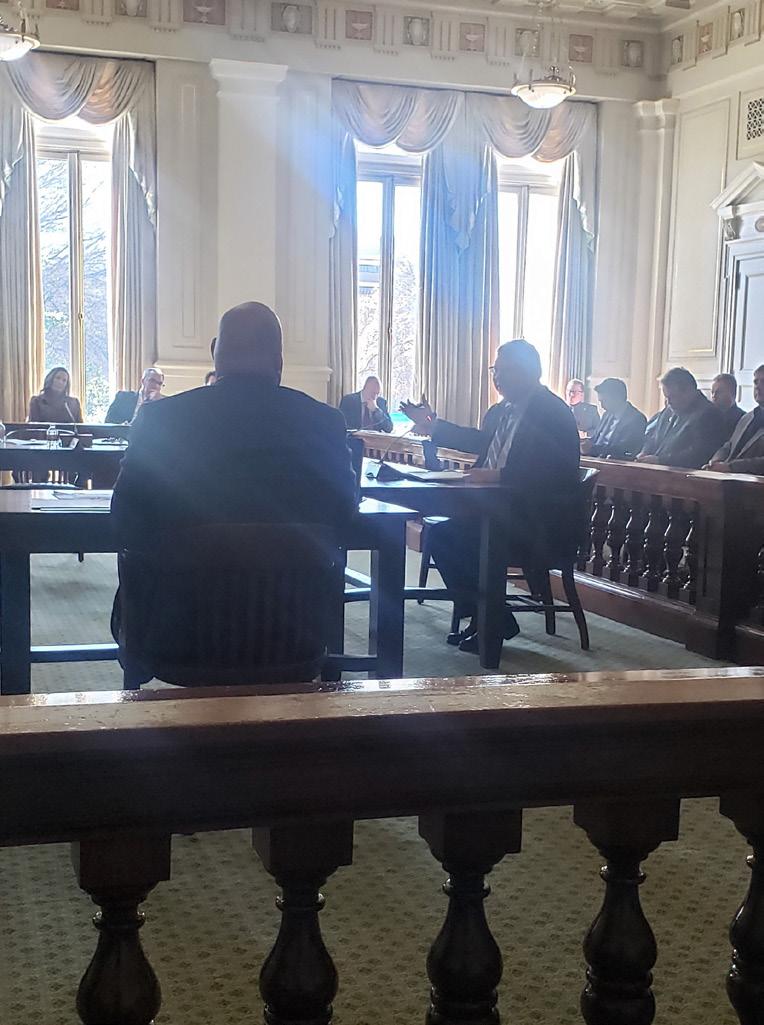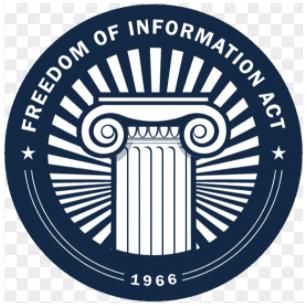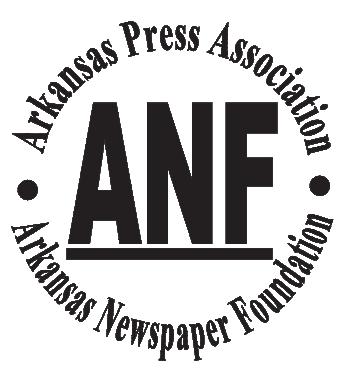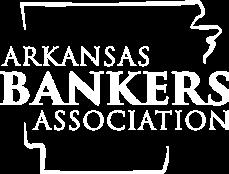Leeming, former editor of Hot Springs Village Voice dies at 84
5 Guest Column:
Informed citizenry
By Pam Lowe
FOIA advocates get big victory on open meetings law during busy National Sunshine Week at State Capitol
A busy but difficult week at the State Capitol ended with a huge victory for a coalition of Freedom of Information Act advocates in Arkansas amid “Sunshine Week” activities across the state and nation.

In an all-day hearing before the House State Agencies and Governmental Affairs Committee, House Bill 1610 by Rep. Mary Bentley, R-Perryville, and Sen. John. Payton, R-Wilburn, was rejected in a voice vote at the end of an all-day hearing. That bill would have amended the Arkansas FOIA law’s definition of a public meeting by adding the words “of a quorum” into the statute.
That bill was first brought before the House panel late Wednesday morning, but debate on the one-page proposal lasted until after 5 p.m. that evening following the lower chamber’s daily floor hearing.
After testimony from eight FOIA advocates representing APA, the Arkansas FOIA Coalition, the legislature-
appointed FOIA Task Force and other groups and individuals, several lawmakers asked Bentley to pull the bill down and negotiate an agreement with the APA and other FOIA groups. She adamantly refused, and the House panel rejected the measure as several FOIA advocates cheered.
“This has been a busy and exhausting week for us, and I’m glad we were able to defeat HB 1610, which would have really undermined the open meeting requirements of the Arkansas FOIA going all the way to 1967,” APA Executive Director Ashley Wimberley said after Wednesday’s marathon meeting. “We achieved a lot this week in making sure that we continue to have one of the best FOIA laws in the United States.”
Earlier on Tuesday Senate Bills 380, 381 and 382 by Sen. Alan Clark, R-Lonsdale saw mixed results during more than two hours of debate before the Senate State Agencies and Governmental Affairs Committee. All three bills, supported by
the APA and the state FOIA Coalition and Task Force, would expand and improve the state’s highly regarded FOIA enacted into law in 1967.
The first FOIA-related bill debated before the Senate panel for an hour would require custodians of public records and documents to respond to FOI requests in writing within three working days, even if no records were available. Senate Bill 380 would also require a custodian to communicate if responsive records exist with legal exemptions and to identify the proper owner of the requested public records – all within the three-day window. After Clark tagged on an amendment to clarify language in the bill, Fort Smith Attorney and FOIA advocate Joey McCutchen introduced the two-page measure as “straight-forward” legislation to make government more open and transparent.
“FOIA is known as the people’s law, and this bill is designed to allow records to be accessed in accordance with the spirit of the legislative intent of the (law),” said McCutcheon, who was representing the Arkansas Transparency in Government Group.
After more than a half-dozen other FOIA advocates came to the podium to speak in support of SB 380, Arkansas Advocate Editor-in-Chief Sonny Alvarado ended testimony by noting that the Arkansas FOIA law signed over 55 years ago is still generally considered one of the strongest and best models for open government in the United States.
Arkansas Press Association Publisher Weekly Vol.18 | No. 11 | Thursday, March 16, 2023 | Serving Press and State Since 1873 Continued on Page 2
6
FOIA advocates get big victory on open meetings law during busy National Sunshine Week at State Capitol
Continued from Page 1
“I have worked in three states, Louisiana, Tennessee and Arkansas, and worked under three different FOI laws. Arkansas (FOIA), despite some exemptions that have been added since the years I’ve lived here, is still one of the strongest in the country,” said Alvarado. “This bill makes it stronger.”
Lanny Richmond, legal counsel for the Arkansas Municipal League, was the lone person to speak against SB 380, saying a new law would “create ambiguity” in the length of time a custodian must respond to a FOIA request. Following the debate, Sen. Bryan King, R-Green Forest, offered a “do pass” recommendation but SB 380 failed to move out of committee due to the lack of a second.
Next on the agenda, Senate Bill 381 also saw nearly the same lineup speaking in support of legislation mandating annual FOIA training for the local governing bodies, including city councils, quorum courts and school boards.

Clark’s original bill filed on March 7 would have required at least two hours of “in-person or live training by video conference provided by a person knowledgeable about” the FOIA. The training would also be open to the public. However, Clark amended the bill to require only one hour of training, which
assuaged some opposition from the committee.
The strongest defense of HB 381 came from Robert Steinbuch, a law professor at the University of Arkansas at Little Rock Bowen School of Law. Steinbuch, who serves on the Arkansas FOIA Coalition and the legislature-backed state FOIA Task Force, told the committee that the one-hour training requirement was not burdensome. He also lambasted the Municipal League for repeated attacks on the state FOIA law.
“The bottom line is that one hour is not that much to require of our elected officials,” he said.
In closing for his bill, Clark said annual training was necessary to halt repeated violations of FOIA by local elected officials, including those who say they don’t know or understand the law. “We are attempting to fix that. The whole point here is that we need training,” he said.
Following a motion by King to approve SB 381 and a second by Payton, the measure received a “do pass” recommendation in a voice vote and moved to the Senate floor on Thursday where it failed to get the required support. The final tally was 15 yeas, 10 nays and 10 present or not voting.

Freedom of Information Day is observed every year on March 16, the birthday of President James Madison, a fierce advocate for the freedom of data and individual rights to obtain the correct government information.

Freedom of Information Day celebrates the idea of free information, giving more power and transparency to people and making democracies stronger. Every person has an equal role in the nation’s governance, which means that everyone’s vote is important. The same fact applies to freedom of information.
Every citizen deserves to know the facts related to the government. This helps people make important decisions and ensure that their government and elected representatives serve them well.
Arkansas Publisher Weekly 2 March 16, 2023
The Senate State Agencies and Governmental Affairs Committee heard several bills pertaining to Arkansas FOIA on Tuesday
Publisher Andrew Bagley testifies on behalf of APA in favor of SB 382.
PRESS PASS

What is Earn Your Press Pass?

Earn Your Press Pass is a simple course, covering the basics of community journalism. It is designed to train those with limited or no news experience to work for their local newspaper,helping to create valuable coverage. It is taught by Lindsey Young, a community journalist and publisher with 10 years of high school teaching experience.
What does the course include?
A. Writing on deadline
B. Fun with leads
A. Taking good photos
B. Editing photos
A. Parts of a newspaper


B. Other terms to know
A. Who should I interview?
B. Preparing for an interview
C. Conducting an interview
D. Interview follow-up
E. Source problems and issues
F. Let’s practice.
A. Newsworthiness
B. News-writing basics
C. Breaking and hard news stories
D. Covering a meeting
E. Working a press release
F. Writing a feature story
G. Covering sports
H. Opinion writing
C. Using quotes
D. Headline writing
E. Cutline writing
F. Thinking outside the pyramid
C. Dealing with submitted photos
X.
A. Tips for effective editing
B. Revising and rewriting
C. Let’s practice.
•
A. Keeping yourself organized
B. Preparing files for layout
C. I have nothing to write about. Help!
Sections are feature videos and printable cheat sheets
• Lessons will continue to be added/updated.
A. Your right to know
B. Avoiding libel
C. Journalism ethics
D. Contradictions of community journalism
“I was extremely impressed. Lindsey even taught this old dog some new tricks. The content is solid, it’s easy to use, and you can sign into and out of the program as your time allows. Lindsey’s engaging nature makes the lessons enjoyable, which makes you look forward to the next segment.”
BAGGETT, TEXAS PRESS ASSOCIATION Executive vice president and a 50-year veteran of small and large Texas newsrooms
For more information, contact Ashley Kemp Wimberley at ashley@arkansaspress.org
EARN YOUR
ARKANSASPRESS.ORG
II. III.
Types of
Introduction
IV. I.
Interviewing
Stories
Newspaper Jargon V. VI. VII. VIII. Journalist Rights and Ethics
Writing Techniques Associated Press Style Editing
IX. Photography Final Bits of Advice
DONNIS
Nominees set for APA board election
This is the third of three required notifications to membership of a special election for seats on the APA Board of Directors. The nominees include:
• Andrew Bagley, co-owner and copublisher of the Helena Daily World and Monroe County Argus
• Tom Byrd, publisher of the Mena Star, Mansfield Citizen, Waldron News and The De Queen Bee
• Scott Loftis, co-owner, editor and publisher of the Carroll County News Ballots will be mailed to APA member newspapers following this publication of this notice. The newly elected members will assume their respective seats on the board at the conclusion of the election.
APA welcomes Inviting Arkansas magazine as new Media Member
APA is pleased to announce the membership of Inviting Arkansas as a Media Member.
Co-owned by John and Michele Towne, Inviting Arkansas is a monthly magazine established in February 2002. The Townes were inspired by RSVP Memphis, which covers that city’s social and philanthropic scene. Inviting Arkansas was the Little Rock metro’s first glossy monthly publication of that type. With a vision to spotlight local philanthropy, Inviting Arkansas focuses its coverage on nonprofit organizations and the people who strive to make them successful through contributions of time, talent or money. The magazine features articles on four to six nonprofits a month, plus photos from a dozen or more events and features on fashion, food and entertaining. Michele Towne serves as the magazine’s publisher. Kim MeyerWebb is the editor. Inviting Arkansas can be found on newsstands around Central Arkansas and at invitingarkansas.com. We welcome them to the association.

Support the future of Arkansas Journalism through the Arkansas Newspaper Foundation.

Your donation will help:
• Promote the welfare of the community newspaper industry.
• Fund legislative efforts to protect transparency in state government.
• Cultivate educational opportunities for future journalists.
• Ensure the viability of the newspaper industry for years to come.
To donate, mail a check to: Arkansas Newspaper Foundation
411 South Victory Street Little Rock, AR 72201
The Arkansas Newspaper Foundation is a 501c(3) organization. All donations are tax-deductible to the extent allowable under law.
APA Advertising Conference set for April
Mark your calendars for the 2023 APA Advertising Conference on Friday, April 28.

This year’s APA Advertising Conference will be held in person for the first time in three years. The conference was held via live Zoom in 2021 and 2022.
Marianne Grogan, president of Coda Ventures in Nashville, Tenn., will be the keynote presenter at this year’s ad conference. Grogan’s primary focus is working with newspaper clients to deliver high quality, innovative audience and strategic research to help grow and sustain revenue. In her session, she will take participants

through the results of the statewide study commissioned by APA in 2022 and demonstrate how the data can be used by newspapers for successful sales conversations.
The conference will be held at Red & Blue Events Venue, near the Arkansas State Capitol in Little Rock. The day will also include a luncheon and the APA Better Newspaper Advertising Contest awards ceremony in the afternoon.
Tickets for the advertising conference will be $50. For more information, email info@arkansaspress.org
Arkansas Publisher Weekly 4 March 16, 2023
Michele Towne
Leeming, former editor of Hot Springs Village Voice dies at 84
Frank Leeming Jr. died February 25 at his home in Hot Springs Village. He was 84.
A graduate of the University of Missouri in Columbia, he started his career as a reporter at the St. Louis Post-Dispatch and a correspondent for LIFE magazine. He was credited by LIFE with unearthing critical information and a previously unpublished photograph of James Earl Ray, the man responsible for the murder of Dr. Martin Luther King, Jr. In the May 3, 1968 edition of LIFE, the Editor’s Note states, “As soon as it was announced that James Earl Ray was the real name of the man wanted for the murder of Dr. Martin Luther King, we set out to unearth and reconstruct the life history of this once obscure, now notorious human being. … and we had an invaluable ally in our St. Louis correspondent, Frank Leeming Jr., a veteran reporter on the Post-Dispatch.”
Leeming served as editorial editor of Lindsay-Schaub Newspapers in Decatur, Ill, then business editor of The Philadelphia Inquirer and later city editor and assistant to the executive editor. In 1976, he became circulation sales and marketing manager for the Inquirer and its sister newspaper, the Philadelphia Daily News

In 1978 Leeming was named publisher of
the Kingsport Times-News in Tennessee. In 1983, he and wife Joyce Leeming purchased The Journal of the San Juan Islands in Friday Harbor, Washington, which they published for nearly nine years.
The Leemings retired to Hot Springs Village in the early 1990s. Leeming became vice president of the Village Concerts Association, the largest in the nation with more than 2,700 members, a director of the Village Community Foundation and a director of the Hot Springs Village Property Owners’ Association. In 2005, he came out of retirement to become editor of the Hot Springs Village Voice, serving in that position until 2008.
Leeming was twice nominated for a Pulitzer Prize. Over his career he was a member of the American Newspaper Publishers Association, American Society of Newspaper Editors, Southern Newspaper Publishers Association and National Conference of Editorial Writers, and served as a director of the Tennessee Press Association and Washington Newspaper Publishers Association.
He is survived by his wife, Joyce, and their five children, William C. (Dusty) Leeming and Scott (Barbara) Leeming of Friday Harbor, Washington;
Judges still needed for editorial contest
More volunteer judges are needed to review submissions from the Mississippi Press Association Better Newspaper Editorial Contest. All judging will be online in April.
Categories in the Mississippi contest include News Writing, News Columns, Feature Writing, Profile stories, Sports News and Sports Feature writing, Sport Photos, News or Feature Photos, Graphic or Layout Design and Special Sections. You may request more than one category to judge.
“APA member newspapers are known for consistently turning out quality journalism year after year,” said APA Executive Director Ashley Kemp Wimberley. “Our friends at the Mississippi Press Association are counting on our membership’s expertise for help in critiquing these entries.”
Please volunteer by Friday, March 31 by filling out the form at forms.gle/kk9AcoiU9y6frejs9.

Patricia (Ron) Barrett of Charlotte, North Carolina; Frank Leeming III of Waynesville, North Carolina and Lewis C. Leeming of Haskell; sister Susan Leeming Barnett of Montgomery, Alabama, brother-in-law Joe Thomas (Beth) Barnett of Courtland, Mississippi and six grandchildren. Per his request there will be no service.
INDUSTRY QUOTE
“A free press is the guardian of our democracy. In whatever form, it must be preserved.”
-Charlotte Schexnayder
LET US KNOW
We want to know about your new hires, retiresand promotions!
Send your staffing changes to info@arkansaspress.org to be updated online and included in the Arkansas Publisher Weekly.
Arkansas Publisher Weekly 5 March 16, 2023
Frank Leeming Jr
Guest Column: Informed citizenry...
By Pam Lowe
In this day and age when the truth is often wafer thin and issues that should be transparent are opaque, it’s imperative to let the sunshine in and to ensure that vital information is available to the public. A community’s newspaper is a vehicle through which residents become informed citizens to learn about how their local, state and federal government is operating. Citizens armed with pertinent information are often engaged in their government and become a more knowledgeable voting public.
March 13-19 is Sunshine Week when the news industry comes together to celebrate the importance of access to public information and the Freedom of Information Act (FOIA). FOIA was established in 1967 and for 56 years it has shone a light on information intended to be available to the public. Sunshine Week has been observed annually since 2005 to correspond with March 16, the birthday of James Madison, major contributor to the ratification of the U.S. Constitution and a stalwart advocate for the Bill of Rights, particularly the First Amendment.
In 2023, it has never been more important to protect transparency. In nearly every legislative session, there is some attack to gut the FOIA. In fact, the public’s tax dollars are often used by officials to pay private entities or lobbyists to advocate against transparency rights to benefit bureaucrats and keep citizens in the dark.
Citizens are entitled to know what their government is doing that affects them, to see the records that reflect that and the data and documents produced.
Newspaper articles about city council meetings and legislator business, happenings in the city, law enforcement reports and court records all fall into the realm of the public’s right to know. Law enforcement, the mayor, city council members and state legislators all work for us; John Q. Public. Newspapers and news outlets safeguard that they aren’t looking after their own best interests. The Freedom of Information laws help make that possible. The Freedom of Information Act is a people’s act. It is for transparency within government, because it is the citizens of the community that support the public institutions. It is their
taxes that pay for the police departments, their taxes that pay the mayor and quorum court members. And they are all entitled to know how their dollars are being spent and the various issues.
John Tull, Arkansas Press Association attorney, founding member of Quattlebaum, Grooms & Tull PLLC in Little Rock, and member of the Arkansas Freedom of Information Task Force, is a staunch defender of FOIA. In a conversation with him a couple months ago regarding FOIA issues he said, “Everyone dealing with Freedom of Information recognizes the need for transparency when you need to be transparent with your constituents. And there too often is the knee jerk reaction trying to prevent being questioned about something or trying to prevent stirring up people, but people have a right to know. And if it is a document that is covered out of the Freedom Information, you’re entitled to see it, unless there is a specific exemption that prevents the disclosure of that document.” For instance, concerning law enforcement and FOIA laws he said that the citizens of a community are entitled to know, one, what the police are doing, and they’re entitled to know what crime is being committed and where it is happening. “Citizens have a right to their own safety,” said Tull. “They have a right to know if there’s a perpetrator in the neighborhood. If there’s a rash of burglaries, if there are drugs, transactions being taken, I mean, citizens have a right to know and citizens have a right to file Freedom of Information Act for the very same thing.” Federal Freedom of Information laws are available to everyone. The news industry uses them regularly, but as citizens of the state of Arkansas, the public can request pursuant through the FOIA or Freedom of Information Act too. The Supreme Court has determined that when documents are within FOIA’s disclosure provisions, citizens should not be required to explain why they seek the information. The information belongs to citizens to do with as they choose.
It is important for people to realize that communities that suffer the loss of their newspaper no longer have local coverage of the issues that affect them. That deficit of local reporting has an impact on the
budgets of cities and towns as there is no one there to report waste or fraud if it occurs. A newspaper helps a city or town to be accessible to its residents. Along with reporting the news and events, the newspaper is the community’s watchdog. The last few years have been tough on the newspaper industry. The economics of the newspaper business has caused numerous papers to decrease their home delivery, and some have reduced their frequency of publication in an effort to preserve their community’s ombudsman. Despite these efforts to save them, many citizens across the country have mourned the loss of their local newspapers and their access to local news and the elimination of a transparency safeguard.
Many citizens do not realize that the newspaper is a local business too. This may not be important to those who mistakenly believe that social media outlets are trusted news sources, but the loss of a newspaper would be detrimental to its community for a variety of important reasons, but particularly where FOIA and clear, open information is concerned.
Newspapers are advocates for the residents of their communities; for those that need a voice, and information, but just as they support their communities; newspapers need their communities to support them.
The currency of trust is transparency. It is needed to maintain faith, confidence and to enable an open dialogue between citizens and their government. Newspapers are vital to garnering that transparency. To celebrate Sunshine Week, support your community newspaper by purchasing subscriptions or advertisements and bask in the knowledge that you participated in the advancement of liberty and informed citizenry.
To learn more about FOIA in Arkansas, download the Arkansas Freedom of Information Handbook on the Arkansas Press Association’s website: https://arkansaspress. org/freedom-of-information-handbook/ or drop by the Clay County Courier office to receive a handbook.
Pam Lowe is managing editor at the Clay County Courier in Corning. She can be reached at plowe@cherryroad.com.

Arkansas Publisher Weekly 6 March 16, 2023
94th Arkansas General Assembly
Legislative Report
APA is monitoring the following filed bills of interest to our industry and the public:
Bill No. / Author Short Description
HB 1099
Rep. Collins
An act to expand the Arkansas FOIA - Expands the time a custodian, requester, or the subject of certain public records can seek an opinion from the Attorney General on whether the decision by a public-records custodian to release those records is consistent with FOIA.
https://bit.ly/3HcRslh
HB 1399
Rep. Cavanaugh
HB 1584 Rep. Watson
HB 1616
Rep. Cavenaugh
An act to amend the law regarding publication requirements for counties and municipalities; to amend the law concerning elections; and to amend the law concerning tax delinquency lists.
https://bit.ly/3xqOiEM
An act to amend the requirements for a tow business to give public notice in certain circumstances; and for other purposes.
http://bit.ly/3JqgtdS
To Amend The Law Concerning Publication Of Notice; To Allow The Publication Of Notice On A Website; To Amend The Law Concerning Counties And Municipalities And Publication; And To Amend The Law Concerning Elections. bit.ly/3n0hW1P
HB 1444
Rep. Ray
HB 1555
Rep. Meeks
SB 353
Sen. Dotson
SB 380 Sen. Clark
SB 381
Sen. Clark
To Amend The Law Concerning The Attorney General's Review Of Consent Decrees Entered Into By Covered Entities. bit.ly/3lqgTHN
To Regulate Meetings, Internal Policies And Guidelines, And Reports To Address A Cybersecurity Incident Involving, Or A Cyberattack On, A Public Entity. bit.ly/3ZSayUt
To Amend Arkansas Law Concerning Drafting Requests And Information Requests To Legislative Employees. bit.ly/3yL07GI

To Require Records Custodians To Respond In Writing In Certain Circumstances Under The Freedom Of Information Act Of 1967. bit.ly/3LvQOSy
To Amend The Freedom Of Information Act Of 1967; And To Require Certain Regular Training Of Public Governing Bodies.
bit.ly/3yJzZMb
Neutral Referred To Transportation, Technology & Legislative Affairs - Senate
Neutral Referred to the Committee on State Agencies & Governmental Affairs - House
Supports Failed in State Agencies & Governmental Affairs - Senate
Supports Failed on Senate Floor
SB 382
Sen Clark To Define "Meeting" Under The Freedom Of Information Act Of 1967; And To Amend The Law Related To Public Meetings Under The Freedom Of Information Act Of 1967. bit.ly/40gPPK7
HB 1610
Rep. Bentley
To Amend The Law Relating To Public Meetings Under The Freedom Of Information Act Of 1967. bit.ly/3ZRwqj9
Supports Referred to State Agencies & Governmental Affairs - Senate
Opposes Failed in State Agencies & Governmental Affairs - House
Arkansas Publisher Weekly 7 March 16, 2023
APA Position Current Status
Supports Now Act 36
No Position Referred to the Committee On City, County & Local Affairs Committee - House
Opposes Referred to the Committee on Public Transportation - House
No Position Referred To the Committee on City, County & Local Affairs Committee - House
Neutral
Amended in State Agencies & Governmental Affairs - House
Medical Marijuana in the Workplace- Virtual

MEDICAL MARIJUANA IN THE WORKPLACE VIRTUAL LEARN MORE ABOUT THE FUTURE OF MEDICAL MARIJUANA USE IN ARKANSAS

REGISTER NOW
WHEN
April 25, 2023
10:00 a.m. – 11:00 a.m.
During this session we will provide an overview of the failed ballot initiative in Arkansas and the future of recreational marijuana use in Arkansas, then shift into medical marijuana in the workplace, the inevitable issues and challenges that face employers, and the need to adopt and implement appropriate policies related to medical marijuana in the workplace.
TOPICS OF DISCUSSION:
WHERE
Comfort of your desk or anywhere with an internet connection.
WHO SHOULD ATTEND
CEOs, COOs, Presidents, Chief Compliance Officers, Chief Risk Officers, Compliance Managers, and others responsible for regulatory compliance/risk management.
• Overview of State Regulated Cannabis
• Failure of Issue 4 (the ballot initiative to legalize recreational marijuana use)
• New Proposal Expected in 2024
• Current Arkansas law on Cannabis

• Cardholding Employees
• Employers of Cardholders
• Safety Sensitive Positions
o Handling Confidential Information
o Under the Influence Defined
o Good Faith Belief
o Drug Testing
o Reasonable Suspicion
• Signs and Symptoms
• Written Policy
• Documentation
Arkansas Bankers Association | Professional Development Department

1220 West Third Street | Little Rock, Arkansas 72201 | (501) 376-3741 | www.arkbankers.org
About the Instructor
BRETT W. TAYLOR is a seasoned litigator with experience practicing before the federal and state courts of Arkansas and the Eighth Circuit Court of Appeals. Brett’s broad experience includes defending employers against civil rights claims, professional liability and medical malpractice actions, and a range of other commercial disputes. As a former law clerk for the Honorable J. Thomas Ray, Chief Magistrate Judge for the Eastern District of Arkansas, Brett brings unique and invaluable insight to CGWG’s civil litigation practice.

Brett’s pragmatic approach to defending lawsuits is informed by his experience managing a small industrial supply business in his hometown of Trumann, Arkansas, where he worked after completing his undergraduate coursework in History at Arkansas State University in 2005. After learning how to manage a business, Brett pursued his law degree at the University of Arkansas at Little Rock William H. Bowen School of Law, where he graduated cum laude with several Top Paper awards in contracts, business associations, and intellectual property.
REGISTRATION FEES
ABA Members:
Price: $50
Non-Members:
Price: $100
CANCELLATION
Full registration fees will be refunded if a cancellation is received before April 10. No refunds will be given for cancellations made after April 10. All cancellations must be submitted in written format prior to the event.
VIRTUAL LIVE FORMAT
Attendees will need Internet access and a standard web browser to join this video and web conferencing. They will receive an email with a link to join the virtual meeting, handouts, and any additional information a few days before each event.
You do not need your own Zoom account. You will use the link, meeting ID and password we provide.
• You can log in on a desktop computer, laptop or download the Zoom app on your smart device.
• Internet access
• Audio on computer or a phone line
MEDICAL MARIJUANA IN THE WORKPLACE
APRIL 25, 2023
Bank/Company Name Phone
Registrant Name Title E-mail
Registrant Name Title E-mail Address City State Zip Registration Contact Phone E-mail
PAYMENT INFORMATION
Charge my: r Mastercard r Visa r American Express r Discover



Account Number
Name on Card
Expiration Date CSC Number (3-digit security code on back of your card)

Billing Zip Code
If you would prefer to give us your credit card information over the phone, please call the ABA Professional Development Department at (501) 376-3741. Please do not email credit card information.
Note: Non-Members must pay with credit card or check prior to the event.
Email: kami.coleman@arkbankers.org
Fax: (501) 376-9243
Mail: Check Payable to:
Arkansas Bankers Association Professional Development Department 1220 West Third Street Little Rock, AR 72201
ABA USE ONLY: Registered: Amount: Received:

























